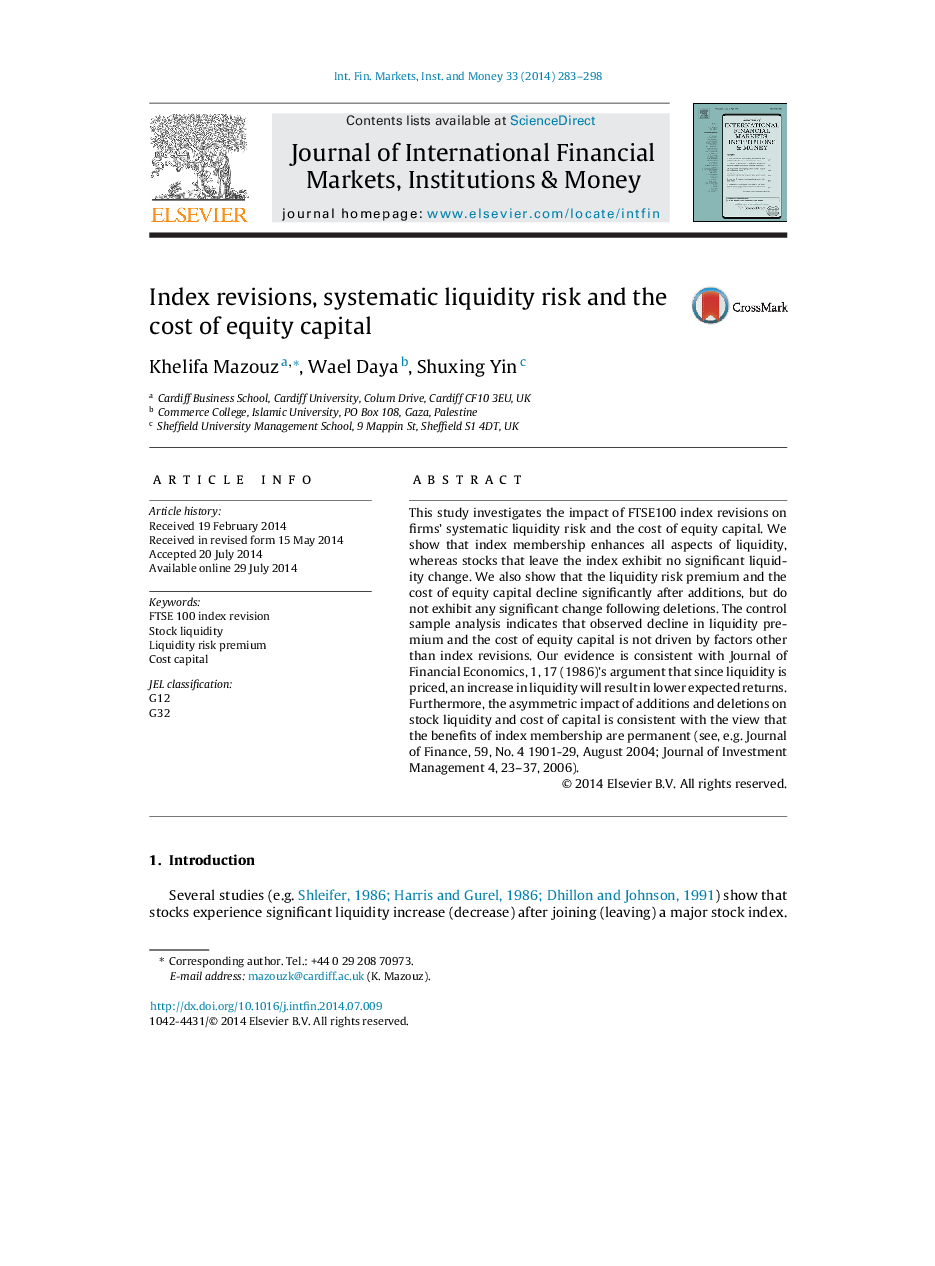| Article ID | Journal | Published Year | Pages | File Type |
|---|---|---|---|---|
| 963874 | Journal of International Financial Markets, Institutions and Money | 2014 | 16 Pages |
•We examine the impact of FTSE 100 index revisions on firms’ systematic risk liquidity risk and the cost of equity capital and show that.•Additions improve all aspects of liquidity and deletions have no significant impact on liquidity.•Index membership reduces liquidity risk premium and the cost of equity capital, whereas the cost of equity does not change following deletions.•The asymmetric impact of additions and deletions imply that the benefits of index membership are permanent.
This study investigates the impact of FTSE100 index revisions on firms’ systematic liquidity risk and the cost of equity capital. We show that index membership enhances all aspects of liquidity, whereas stocks that leave the index exhibit no significant liquidity change. We also show that the liquidity risk premium and the cost of equity capital decline significantly after additions, but do not exhibit any significant change following deletions. The control sample analysis indicates that observed decline in liquidity premium and the cost of equity capital is not driven by factors other than index revisions. Our evidence is consistent with Journal of Financial Economics, 1, 17 (1986)’s argument that since liquidity is priced, an increase in liquidity will result in lower expected returns. Furthermore, the asymmetric impact of additions and deletions on stock liquidity and cost of capital is consistent with the view that the benefits of index membership are permanent (see, e.g. Journal of Finance, 59, No. 4 1901-29, August 2004; Journal of Investment Management 4, 23–37, 2006).
